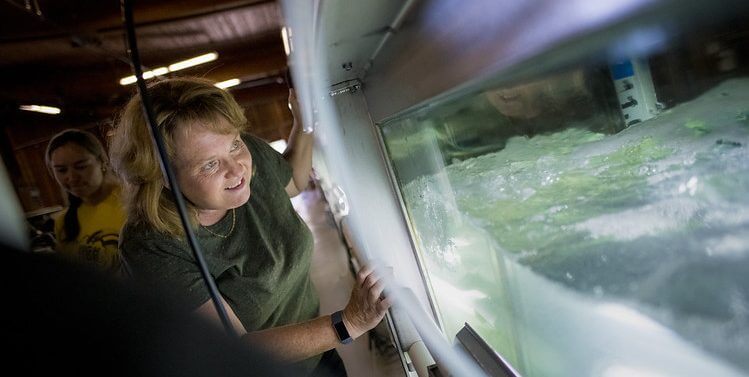
Dr. Kimberly Prather, PhD is a well regarded and highly honored American Atmospheric Chemist. Presently she is a Distinguished Professor at the Scripps Institution of Oceanography at the University of California, San Diego, as well as Founding Director of the NSF Center for Aerosol Impacts on Chemistry of the Environment; Distinguished Chair in Atmospheric Chemistry; and a Professor in the Department of Chemistry and Biochemistry, Scripps Institution of Oceanography, UCSD.
Her list of awards and accolades is even longer. It includes such honors as being elected to the National Academy of Sciences, elected to the National Academy of Engineering, placed on the Top 100 Power List (Analytical Scientist), receiving the ACS Frank H. Field and Joe L. Franklin Award for Outstanding Achievement in Mass Spectrometry, given the Chancellor’s Associates Excellence Award in Research in Science and Engineering, and named in the Top 50 Women in the Analytical Sciences by The Analytical Scientist Power List of World Leaders. The full list is much, much longer than just this paragraph.
But as Dr. Prather might herself point out, credentials and honors are meaningless unless your scientific findings are reflected.
Dr. Prather’s work is not only reflected, it’s actively improving lives. Her body of research focuses on measurements of concentrations of particles small enough to be inhaled deep into human lungs — impacting human health. This research can be used for alerting the public and predicting days with heavier airborne pollution and bacterial loads.
Dr. Prather has also been quite active in COVID-19 research since its discovery, collaborating with interdisciplinary scientists to study how it spreads and presenting research that can save lives.
We are incredibly humbled and honored to host Dr. Prather on our panel on June 3rd at OSAP to talk about the spread of COVID-19 by biological aerosols, and what we as a species can do about it.
